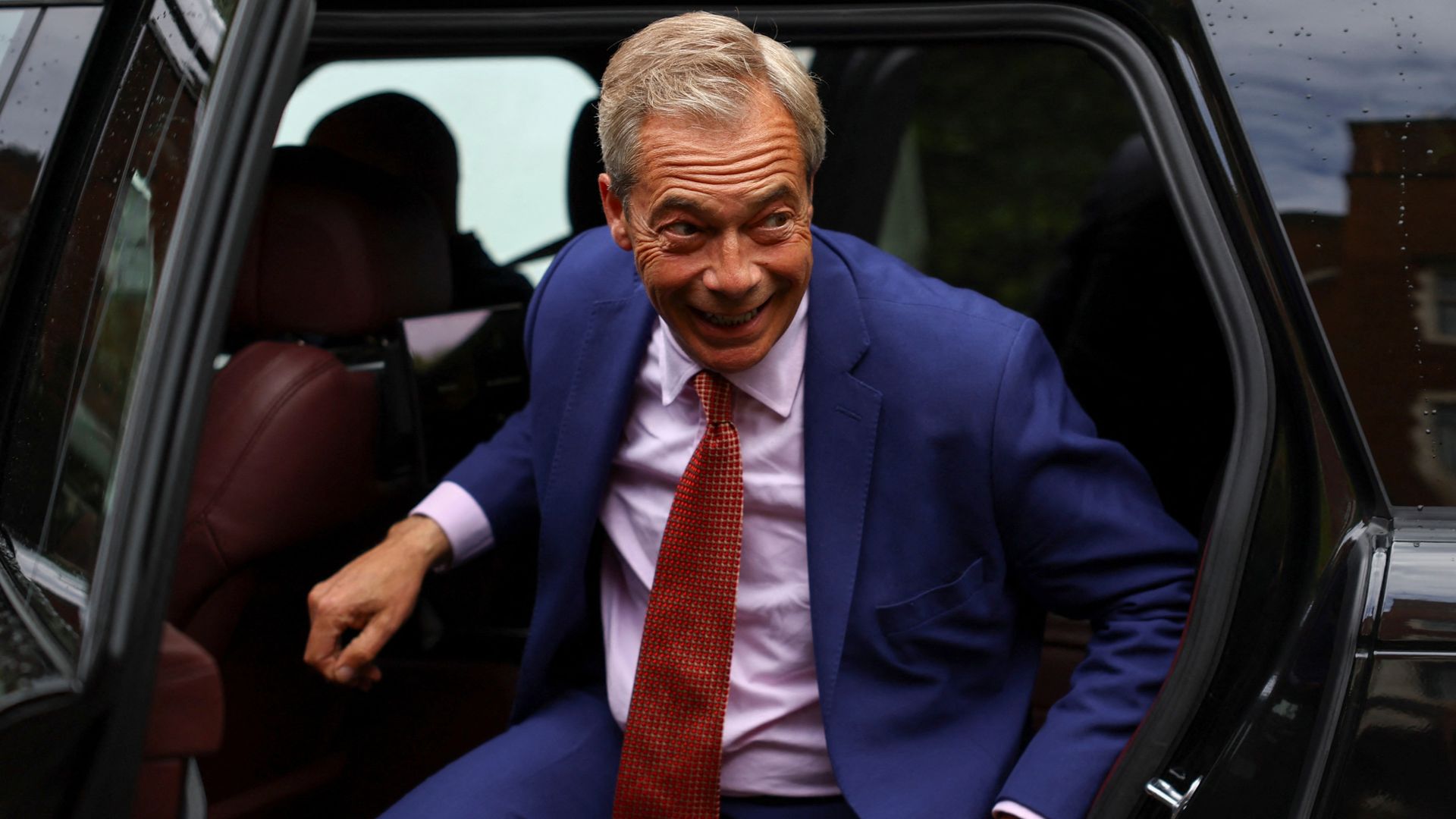There’s no faulting the scale of Reform UK’s ambition – but just how much does this really matter?
Their proposed policies come with a spending tag of an eyewatering £141bn a year – some thirty times the size of Labour’s plans, 10 times the amount of additional spending proposed by the Tories and more than three times the ambition of Liz Truss.
Election latest:
Starmer’s approval rating reaches new high, poll suggests
Energy companies would be partly nationalised in Reform’s Britain, while they would somehow find 30,000 new permanent members of the armed forces and raise the starting rate of income tax to £20,000.
But there is a serious question over whether the 24-page contract is worth the paper it’s written on.
This is no particular disrespect to Reform UK: This is the same issue facing the Greens, Lib Dems and even the Tories.
With little chance of Downing Street beckoning for their respective leaders, why spend so long on policy that will never be used?
Indeed Nigel Farage, the party’s leader, is admirably candid – there is no expectation of a win next month, and therefore he claims these ideas are a blueprint for the 2029 election.
Farage is setting his sights on five years of Reform UK showing its mettle opposing both the expected Labour government and what Farage hopes is a hollowed-out Conservative Party.
That is the claim – at the moment.
But there are even more searching questions awaiting Farage – for now the tormentor in chief of the Tories – after 4 July.
Please use Chrome browser for a more accessible video player
Could Boris Johnson be key?
There is a tussle within the Conservatives about whether Farage should be admitted to the party in the event of a rout on the other side of the election.
Without him even asking to join the fold, possible successors to Rishi Sunak are dividing over whether to green-light the entry of Farage.
Suella Braverman and Robert Jenrick are in favour, while Priti Patel, Kemi Badenoch and James Cleverly are against.
Boris Johnson, who could play the role of kingmaker in the party’s next leadership election, had been gearing up to suggest Farage should be readmitted, presuming that the former UKIP leader largely sat out the election.
However, the vehemence with which Farage is going after the Tories in this election appears to be pushing the former Tory leader into opposing his readmission.
Notice how one of the critical weathervanes on the issue has seemingly changed position in recent weeks.
All of this leaves aside Farage’s own wishes on the issue.
He has weaponised the Tory implosion and his primary argument at this election is that the Conservative Party is spent and needs replacing.
Read more:
Do the figures in Reform UK’s ‘manifesto’ add up?
Reform candidate quits over BNP comments
Farage is keeping his options open
However, this is harder than it sounds, even for Farage.
The first past the post voting system makes it all but impossible for Reform to make huge strides in a couple of elections, however decayed the main parties might look.
The current projections put Reform UK on little more than half a dozen seats at best, and there are some doubts that Farage will easily win the Essex seat of Clacton.
So if Farage is serious about spearheading a movement, is Reform really the right vehicle for it or is a broken Conservative Party a better host for his ambition, given there is a chance the membership could well elect him leader if he ever got into the last two candidates in a contest to run the party?
That is why today I pushed him repeatedly on whether he would rule out switching to the Tories post-election if he won his seat.
Please use Chrome browser for a more accessible video player
He could not have been more elliptical: He said he did not know what he would be having to eat in five years time, called the question “moronic” and said he had no intention of joining the Tories but refused time and time again to give a more categorical answer.
There must be a reason why he sidestepped the question so many times.
The most obvious of these is that he genuinely has not ruled out the possibility, depending on the success or otherwise of Reform UK and the makeup of the Conservative Parliamentary party after 5 July.
Farage has been consequential in our politics for well over a decade, in part because he had clear goals.
But today he kept his options open, and for once it is less clear where he is going.
He will be one of the biggest figures to watch the day after the election.
Keep up with all the latest news from the UK and around the world by following Sky News
Be the first to get Breaking News
Install the Sky News app for free
The other candidates standing in Clacton against Nigel Farage for Reform UK are:
• Matthew Bensilum, Liberal Democrats
• Craig Jamieson, Climate Party
• Tony Mack, Independent
• Natasha Osben, Green Party
• Jovan Owusu-Nepaul, Labour Party
• Tasos Papanastasiou, Heritage Party
• Andrew Pemberton, UKIP
• Giles Watling, Conservative Party





